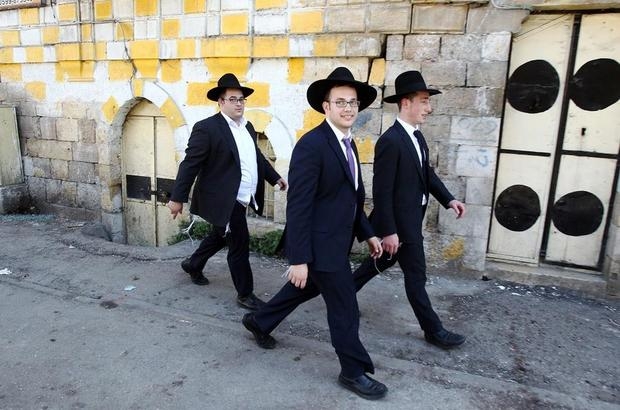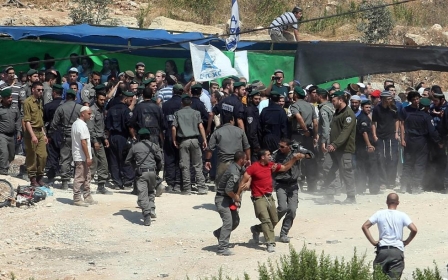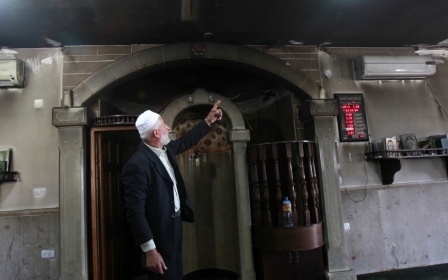Israeli impunity behind settler violence

By condemning Friday's killing by settlers of Palestinian toddler Ali Dawabsheh, the Israeli government would have us believe that it is committed to tackling settler violence. What the government seeks to conceal is the state's fundamental culpability in fostering an environment that encourages such violence.
One word best encapsulates the cause of it: impunity. This impunity is nurtured by the state's favouritism toward settlers in every facet of life. They are offered myriad incentives to live throughout the occupied territories, on the basis that the land somehow does not belong to its indigenous inhabitants.
They are given the lion's share of Palestinians' natural resources. They have their own road networks that Palestinians cannot use. They are protected by forces that all too often turn a blind eye to settler violence, and in some cases even aid and abet such criminality, and arrest the victims rather than the perpetrators.
According to an October 2013 UN report: "From January to August 2013, compared to the same period in 2012, the number of casualties caused by Israeli security forces increased more than four-fold, as security forces intervene in settler attacks or resulting clashes between settlers and Palestinians to disperse Palestinians, rather than to protect them from attacks by settlers."
A 2013 report by the UN International Fact-Finding Mission on Settlements came to the "clear conclusion that there is institutionalised discrimination against the Palestinian people when it comes to addressing violence."
Settlers have a "justice" system distinct from that for Palestinians in the occupied territories. In the rare instances when settlers are tried, it is carried out in civil courts under the Israeli judicial system. This affords them freedoms and legal guarantees denied to Palestinians, who face military courts.
"The authority to arrest an individual, the maximum period of detention before being brought before a judge, the right to meet with an attorney, the protections available to defendants at trial, the maximum punishment allowed by law, and the release of prisoners before completion of their sentence – all of these differ greatly in the two systems of law, with the Israeli system providing the suspect and defendant with many more protections," says Israeli human rights organisation B'Tselem.
"Thus, different legal systems are applied to two populations residing in the same area, and the nationality of the individual determines the system and court in which he or she is tried. This situation violates the principle of equality before the law, especially given the disparity between the two systems. It also violates the principle of territoriality, conventional in modern legal approaches, according to which a single system of law must apply to all persons living in the same territory."
As such, punishments are meted out to Palestinians that would be unthinkable for settlers. For example, the latter would never be subjected to torture or have their homes demolished. No arrests have yet been made for the attack against the Dawabshehs, yet Israel often responds to Palestinian attacks by rounding up suspects en masse.
On the other hand, for example, a new law gives Palestinians up to 20 years in jail for throwing a stone. Another new law provides the right to force-feed Palestinian hunger-strikers, who are simply protesting the violations of their rights. This comes despite opposition from the Israeli Medical Association, which says this constitutes torture.
Such laws should come as no surprise given that the "justice" minister is far-right extremist Ayelet Shaked, arguably most infamous for a Facebook post claiming that "the entire Palestinian people is the enemy" and calling for its destruction, "including its elderly and its women, its cities and its villages, its property and its infrastructure."
Israel on Sunday did approve the detention of citizens suspected of violence against Palestinians without trial, but it is likely to be used in exceptional cases only. By contrast, thousands of Palestinians are held without trial for months and even years, without being informed of the charges against them, and without their lawyers being allowed to examine the evidence (B'Tselem puts the number of Palestinians in detention without trial at 5,442 as of June). Israeli citizens are highly unlikely to be treated as harshly.
According to a report in May by Israeli human rights organisation Yesh Din, "the chance that a complaint submitted to the Israel Police by a Palestinian will lead to an effective investigation, the location of a suspect, prosecution, and ultimate conviction is just 1.9 percent."
Yesh Din added: "Without enforcement there can be no deterrence. The state thereby conveys the message to offenders that it does not take a serious view of their actions, and perhaps even that it is not interested in halting these actions."
Legal measures will only go so far in curbing settler violence - the only way to put a stop to it is for Israel to dismantle its colonial project. This is something none of its governments have been willing to consider, not least because it has not come under the necessary pressure from its allies and the international community at large. They provide only words, which are meaningless without punitive measures.
That is why grassroots efforts - such as the increasingly effective Boycott, Divestment and Sanctions (BDS) movement - must be further supported and galvanised to push for an end to Israel's impunity, its allies' complicity, and the international community's inaction.
- Sharif Nashashibi is an award-winning journalist and analyst on Arab affairs. He is a regular contributor to Al Arabiya News, Al Jazeera English, The National, and The Middle East magazine. In 2008, he received an award from the International Media Council "for both facilitating and producing consistently balanced reporting" on the Middle East.
The views expressed in this article belong to the author and do not necessarily reflect the editorial policy of Middle East Eye.
Photo: Settlers are offered myriad incentives to live throughout the occupied territories
New MEE newsletter: Jerusalem Dispatch
Sign up to get the latest insights and analysis on Israel-Palestine, alongside Turkey Unpacked and other MEE newsletters
Middle East Eye delivers independent and unrivalled coverage and analysis of the Middle East, North Africa and beyond. To learn more about republishing this content and the associated fees, please fill out this form. More about MEE can be found here.





